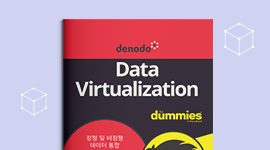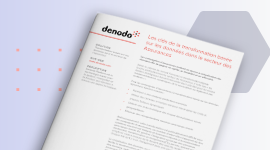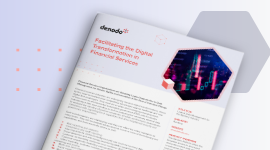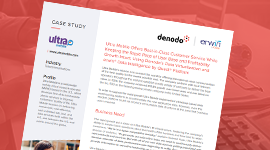What Is Data Analytics?
Data analytics is the process of examining data sets to extract information that may be hidden from the casual user and draw conclusions about the impact of that information. Data analytics can range from the simplest of business intelligence, to online analytical processing, all the way up to very advanced analytics.

By the end of 2024, 75% of enterprises will shift from piloting to operationalizing AI, driving a 5X increase in streaming data and analytics infrastructures.

Data Analytics at the Forefront of Business Decision Making
Business intelligence (BI) and data analytics are front and center for every successful company. In fact, with the growing use cases of the IoT, predictive analytics, and machine learning, data analytics often makes the difference between success and failure. Besides predictive analytics based on historical data, real-time analytics has become very critical for companies that depend on real-time data from sensors, social media, the Web, and other sources, to operate their day-to-day business.
Retail businesses might focus on the behavioral analysis of customers, but if they are expanding overseas, they might consider cloud based analytics will be more important. However, a telecommunications company that is providing advanced digital home customer support might focus on prescriptive analytics. Whichever form it takes, data analytics is essential for success across a wide range of industries.
Heterogeneous Data Landscape Challenges
While many companies are engaging in advanced data analytics, here are a few important considerations to keep in mind:
- Unstructured data is playing a larger role in data analytics than structured data. A contextual and prescriptive data analytics platform requires seamless integration of structured and unstructured data in real-time.
- Storing and replicating big data for analytics is both expensive and time consuming. As the role of data scientists become more important, and scientists need sandbox environments for their analysis, physical data movement becomes a bottleneck.
- The current challenges of cloud based data analytics remain an issue, as many companies need both on-premises and cloud based data for analytical purposes. Very few tools today can seamlessly integrate on-premises and cloud data in real time, to create a hybrid, integrated data environment.
- Securing the data across applications is another important problem to solve. With the explosion of streaming data, big data, cloud data, and more, it is not always clear which data steward is responsible for the security of which part of the enterprise data.
By 2021, the number of users of modern BI and analytics platforms that are differentiated by smart data discovery capabilities will grow at twice the rate of those that are not, and will deliver twice the business value.

Importance of Data Virtualization in Data Analytics
Leveraging data virtualization, the Denodo Platform combines the widest range of structured, semi-structured, and unstructured data without replication, making it the ideal data integration layer to feed visualization and analytical tools. The Denodo Platform can easily integrate real-time streaming, social media, and Web data with data from legacy systems to enable analytics in the cloud, on-premises, or in a hybrid environment. Such versatility makes the Denodo Platform an easy choice for all advanced analytical needs, enabling companies to gain competitive advantage.

Benefits of Data Virtualization in Data Analytics
Investments in the Internet of things (IoT), deep learning, machine learning, and big data analytics will not provide a competitive edge unless companies can gain highly contextual, actionable insight from those investments. Data virtualization is essential for delivering those actionable insights via:
The real-time integration of all on-premises and off-premises data without creating physical replicas of the data.
Self-service capabilities for business users, so they can be independent from the IT team for discovering day-to-day business insights.
Augmenting raw data with context from social media, Web, enterprise systems, and other data sources.
A semantic layer, making the trove of enterprise data meaningful to business users.
Enhancing the speed of data and keeping business continuity, while creating room for continuous improvement.

DENODO CLOUD SERVICES
The only pure-play data virtualization product in the cloud
Azure AWS GOOGLE CLOUDCustomer Success Stories
Discover how Denodo helped:
- Seacoast Bank to increase business process efficiency
- Indiana University to rollout a successful decision support initiative
- Ultra Mobile manage hyper growth
Read more customer success stories.
Customers pageRelated Solutions
Master Data Management
Cloud Solutions
See how others are solving their data problems with the Denodo Platform.
Solutions page








